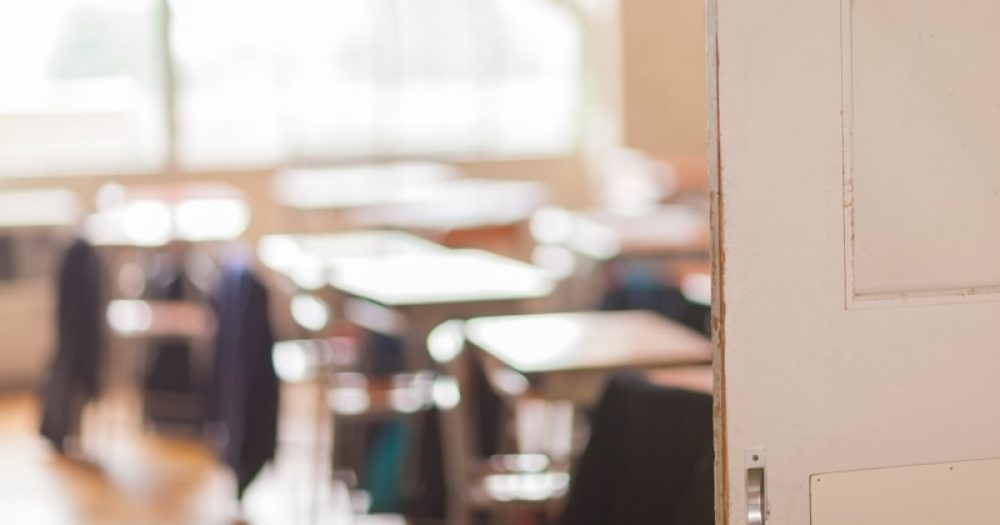Spending time in isolation rooms due to poor behaviour is resulting in pupils feeling reduced belonging, having poorer relationships with teachers and some reporting lower levels of mental wellbeing, a new study has found.
The British Educational Research Journal found one in 12 pupils report being placed in isolation, also known as internal exclusion, per week. The average time spend in isolation was 8.5 hours a week.
Researchers also found disadvantaged pupils were more likely to be removed from classrooms for disruptive behaviour.
But school behaviour adviser Tom Bennett warned removal rooms “shouldn’t be characterised as zones of punishment”, while CEO of City of London Academies Trust Mark Emmerson said the study had a “pejorative and simplistic” view of internal exclusions.
1 in 12 in isolation at least once a week
Researchers analysed survey data from 34,000 pupils at 121 mainstream secondary schools across Greater Manchester from the BeeWell programme.
The study is the “first large-scale investigation into internal exclusion” in England, as the Department for Education does not currently collect data on rates.
One in 12 pupils reported to be placed in isolation at least once a week, while the average time spent in isolation per week was 8.5 hours.
Government guidance states removing a pupil from the classroom “should be considered a serious sanction” and should only be one once all other behaviour strategies are attempted.
Researchers found children with an education, health and care plan were more than twice as likely as their peers to be places in isolation.
Pupils eligible for free school meals were around one and a half times more likely to be internally excluded, the study found.
Children from black, asian and mixed heritage backgrounds, and those who identified as LGBTQ+ also were more likely to be isolated, research showed.
Of those isolated, pupils reported reduced belonging, poorer relationships with teachers, and girls said they had lower levels of mental wellbeing.
‘Isolation is not the solution’
Professor Neil Humphrey, BeWell lead, said: “We know schools face huge pressures in managing behaviour, but our evidence suggests isolation is not the solution.
“We need investment in positive behaviour support, restorative approaches and better mental health provision – strategies that keep children connected to their learning and their school community”.
Dr Emma Thornton, lead author of the study, said internal exclusions “can provide an effective short-term solution for teachers dealing with disruption in their class”.
But she added that findings “show that it is disproportionately applied to young people most in need of support”.
‘Attack on the duty of schools’
School behaviour adviser Tom Bennett said isolation rooms “are a perfectly normal and often necessary part of running a school that is safe, calm and dignified”, and that they shouldn’t be characterised as “zones of cruel punishment”.

Bennett added the study was “yet another attack on the duty of schools to keep students safe and free from abuse, by people with an axe to grind against all forms of adult authority”.
The behaviour adviser argued internal exclusions are not “disproportionately applied”.
“It’s a consequence for being abusive or ruining the education of others – that’s the criteria of usage. It’s not a punishment, it’s a consequence. It’s also not a cure for the student removed, it’s a way to safeguard the physical and mental health of the class and the staff.
“We can’t claim to care about children’s safety, about racism, about misogyny, or bullying or intolerance, if we cannot do anything about them.”
‘Not surprising’
Mark Emmerson, former DfE behaviour adviser and CEO of City of London Academies Trust, said the study results were “not surprising”.
But he said “the term isolation rooms I think is a bit pejorative and simplistic, because there’s a whole range of different arrangements where children are withdrawn from classrooms for behaviour reasons”.

Emmerson defended the use of internal exclusions.
“We’re trying to ensure that children leave school and are able to function as independent citizens and that requires intervention, support and consequences and also to ensure that the other children’s education is not affected by disruption.”
He added that isolation rooms “should have lots of work for the children to do, have a teacher, be well managed, and then have the ambiance of a normal classroom”.
Pupils lost a judicial review in July against their former school John Smeaton Academy in Leeds after claiming they spent up to half a year in “unpleasant and distressing” isolation rooms.







Your thoughts